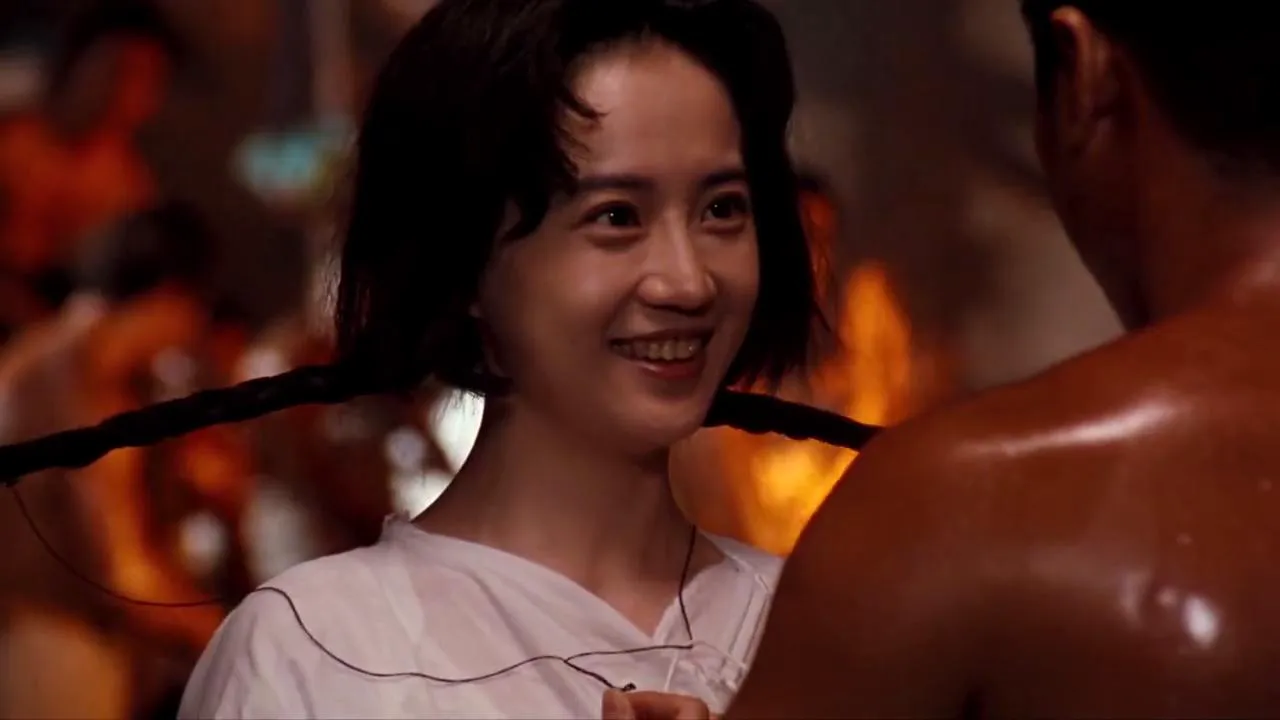A Weekly Film Dive: This Time, It’s “The Blade”
Wuxia films, a uniquely Chinese cinematic genre, perpetually revolve around the “jianghu” – a martial arts world filled with swordplay, romance, rival clans, youthful heroes, and legendary skills. Essential ingredients in this mix are, of course, weapons and beautiful women.

It seems every wuxia story is inseparable from iconic weapons. Think of Jin Yong’s Heaven Sword and Dragon Sabre, or Gu Long’s Flying Daggers. Protagonists and antagonists alike wield extraordinary arms. Even in the realm of gods, as Sun Wukong’s staff would attest, this rule holds true.
The Central Weapon: A Broken Blade
In this film, the primary weapon is the blade. The protagonist works in a smithy, dealing in knives – not kitchen knives, but deadly broadswords. Among these, a broken blade holds particular significance; it’s enshrined in the hall.
This blade, inherited from the protagonist’s father, was once exceptionally sharp, but now only half remains. A broken blade implies a fight, and indeed, its owner perished in that very battle, leaving the protagonist, Ding’an, orphaned.
Ding’an is taken in by his father’s friend at the smithy, a large establishment called Refining Peak. The name alone suggests its power. With many brothers-in-arms, countless weapons, and formidable men, Ding’an isn’t alone. He has a close friend and a girlfriend.
Brotherhood and Beauty in the Jianghu
The jianghu always involves brothers and beauties. Brothers either have your back or stab you in it; fortunately, this time it’s the former. Beauties are either femme fatales or angelic partners, but the beauties in this story are a bit different.
“The Blade” features two very different types of beauties. The first is the Refining Peak’s beloved daughter, spoiled and eccentric. Her jianghu involves only two people: Ding’an and Tie Tou (Iron Head).
Many women fantasize about having two men who love them fight for their affection. Unlike them, this woman actually does it; this is her jianghu.
Knowing that the heroine is playing them, the two brothers don’t fight. Instead, they defer to each other, refusing to turn on each other. Ding’an enters the jianghu to avenge his father, while Tie Tou takes the heroine on a journey to find Ding’an. The reality of the jianghu is revealed.
The other beauty is also unique: a charming courtesan. Tie Tou falls in love with her, and unlike many wuxia stories, Tie Tou’s love isn’t platonic, but a “real” love.
Happy endings are rare in the jianghu. The protagonists of “The Blade” are no exception. After a series of chases and fights, one phase of love and hate ends, but new emotional entanglements begin. Some things change, but some things remain the same forever.